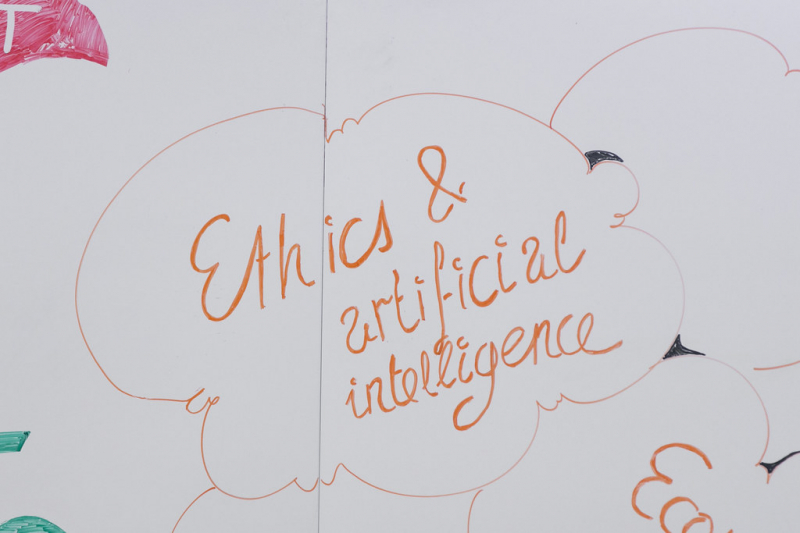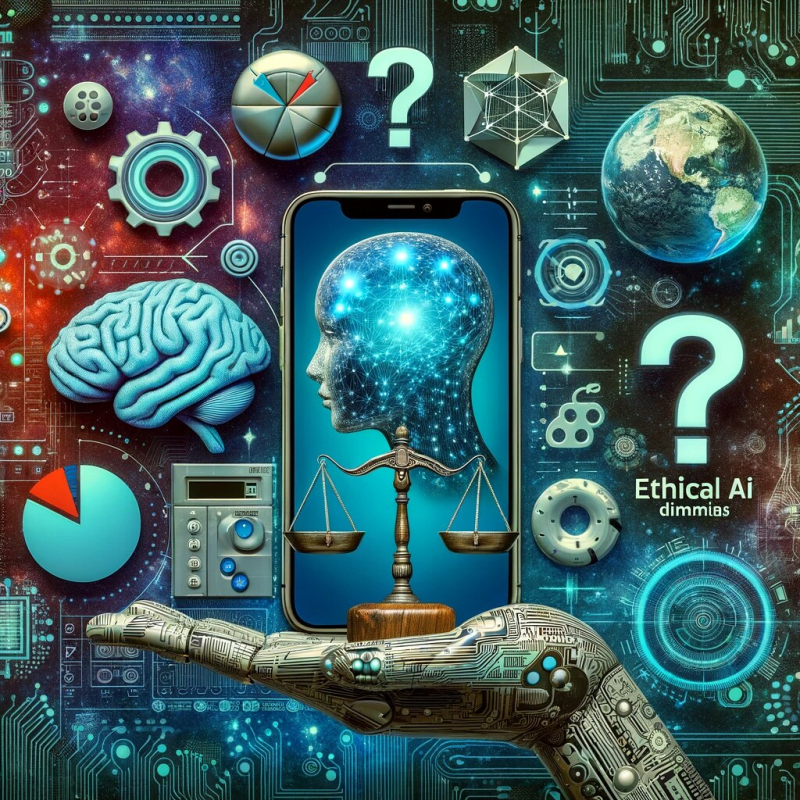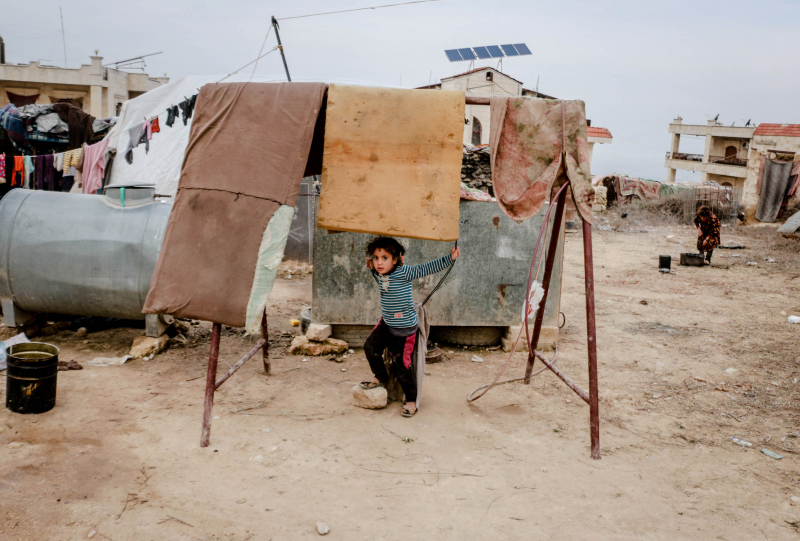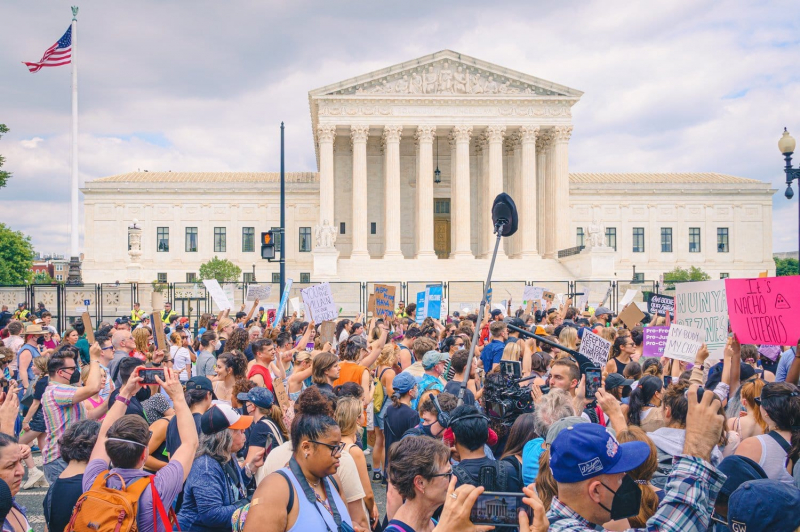Top 10 Good Controversial Essay Topics for College Students
College-level controversial essays might be more sophisticated and subtle, reflecting the greater intellectual level demanded. College essays on government ... read more...surveillance, artificial intelligence ethics, marijuana legalization, and genetic engineering can be controversial. College students must analyze and grasp these issues to improve their research and reasoning skills. In this article, Toplist would like to introduce 10 good controversial essay topics for college students.
-
Topic: Discuss the pros and cons of legalizing marijuana for recreational or medicinal purposes.
Answer:
The contentious issue of marijuana legalization has ignited fervent debates globally, as societies grapple with the implications of embracing cannabis for recreational or medicinal purposes. In this essay, we delve into the complex landscape of this controversial issue, meticulously examining both the advantages and disadvantages associated with the legalization of marijuana.
Legalizing marijuana opens the door to a burgeoning industry, creating jobs and stimulating economic growth. From cultivation to retail, the marijuana sector can be a significant contributor to local and national economies.
The criminalization of marijuana has led to countless arrests and incarcerations, often disproportionately affecting marginalized communities. Legalization offers an opportunity for criminal justice reform by reducing the burden on the system and redirecting resources to more pressing issues.
Marijuana has demonstrated medicinal properties, providing relief for chronic pain and certain medical conditions. Legalization facilitates research, development, and improved accessibility to medical marijuana for patients in need.
Legalization allows for the regulation and standardization of marijuana products, ensuring quality control and reducing the prevalence of potentially harmful substances often found in black-market products.
Advocates argue for individual freedom, contending that adults should have the autonomy to make choices about their recreational activities, including the responsible use of marijuana.
Critics emphasize the potential public health risks associated with marijuana use, including addiction, cognitive impairment, and long-term health consequences.
Opponents raise concerns about marijuana serving as a gateway drug, suggesting that its use may escalate to the consumption of more dangerous substances.
The legalization of marijuana may pose risks to youth, including easier access, normalization of use, and potential negative effects on cognitive development.
Skeptics worry about the impact on road safety, citing studies that link marijuana use to impaired driving and an increased risk of accidents.
The societal costs associated with marijuana use, such as increased demand for addiction treatment and potential strains on public health services, are significant considerations for opponents.
Examining case studies from regions where marijuana has been legalized, such as certain U.S. states or countries like Canada and the Netherlands, provides valuable insights into the real-world consequences of legalization.
Acknowledging potential counterarguments ensures a comprehensive analysis, demonstrating an awareness of differing perspectives and providing reasoned responses to opposing views.
The debate over the legalization of marijuana is a nuanced conversation that extends beyond the dichotomy of right or wrong. While economic opportunities, criminal justice reform, and individual freedom are compelling arguments in favor of legalization, public health concerns, the potential impact on youth, and societal costs are valid points raised by opponents. Striking a balance between individual liberties and societal well-being demands thoughtful consideration, emphasizing the need for ongoing discourse and evidence-based policymaking. As the debate unfolds, the path toward marijuana legalization remains a controversial journey, with both advocates and opponents contributing to the evolving dialogue.
Photo by RDNE Stock project: https://www.pexels.com/photo/woman-in-black-tank-top-sitting-on-bed-8139668/ 
Photo by RDNE Stock project: https://www.pexels.com/photo/an-elderly-couple-sitting-in-the-living-room-holding-a-cigarette-8140313/ -
Topic: The ethics of artificial intelligence (AI) is a complex and evolving field that involves examining the moral and societal implications of AI technologies. Explore different dimensions of AI ethics.
Answer:
Artificial Intelligence (AI) stands at the forefront of technological innovation, offering unprecedented opportunities and raising profound ethical questions. This essay critically examines the ethical dimensions of AI, exploring both its potential benefits and the moral challenges it poses to society. As AI becomes increasingly integrated into our daily lives, understanding and addressing these ethical quandaries are crucial for fostering a responsible and humane development of this transformative technology.
Artificial Intelligence holds immense promise in revolutionizing healthcare, offering improved diagnostics, personalized treatment plans, and innovative research possibilities. AI-powered systems can analyze vast datasets, leading to quicker and more accurate medical diagnoses. This has the potential to enhance patient outcomes, reduce healthcare costs, and contribute to medical advancements. However, ethical considerations arise concerning patient privacy, consent, and the responsible use of sensitive health data.
The proliferation of AI technologies brings with it the specter of job displacement, particularly in industries where automation can replace human labor. While AI can enhance efficiency and productivity, it may lead to economic inequality as certain sectors face unemployment challenges. The ethical imperative lies in addressing these social and economic disparities, ensuring that the benefits of AI are equitably distributed and that society is prepared to navigate the shifting landscape of the job market.
AI systems are not immune to inheriting and perpetuating biases present in their training data. This raises ethical concerns, especially in applications such as hiring, lending, and criminal justice, where biased algorithms can reinforce existing societal inequalities. Striking a balance between the potential benefits of AI and the mitigation of biased outcomes requires continuous monitoring, transparency in algorithmic decision-making, and an ongoing commitment to rectify and prevent discriminatory practices.
As AI systems collect and analyze vast amounts of personal data, concerns about privacy infringement become paramount. The ethical dilemma lies in balancing the need for data-driven insights with the protection of individual privacy. Implementing robust data protection measures, informed consent mechanisms, and clear regulations are essential to mitigate the risk of unauthorized access, misuse, or the creation of surveillance states.
The development of AI-powered autonomous weapons introduces a new ethical frontier. Questions surrounding the loss of human control, accountability, and the potential for these weapons to escalate conflicts raise serious moral concerns. Crafting international agreements and ethical frameworks to govern the development and deployment of autonomous weapons is imperative to prevent the misuse of AI in warfare and to ensure that ethical considerations guide decisions in matters of life and death.
In conclusion, the ethical landscape of Artificial Intelligence is complex and multifaceted. While AI holds immense potential for societal benefit, its ethical challenges demand meticulous attention and proactive solutions. As we navigate the uncharted waters of AI development, a commitment to transparency, accountability, and continuous ethical scrutiny is essential. Only through collective responsibility and a steadfast dedication to ethical principles can we unlock the full potential of AI for the betterment of humanity while safeguarding against its potential pitfalls. The ethical trajectory of AI is a dynamic narrative, one that requires vigilance, adaptability, and an unwavering commitment to the moral compass that guides its evolution.
Photo on Flickr 
Photo on Flickr -
Topic: Government surveillance is a controversial and multifaceted topic that intersects with issues of privacy, security, and civil liberties. Consider exploring various aspects of the subject.
Answer:
Government surveillance has become an integral part of modern governance, striking a delicate balance between national security and individual privacy. This essay dives into the controversies surrounding government surveillance, examining the arguments both for and against, and the implications of living in a world where the line between security and privacy is constantly negotiated.
Proponents of government surveillance argue that it is a necessary tool to safeguard national security. In an era marked by global terrorism and cyber threats, surveillance provides governments with the means to detect and prevent potential threats before they materialize. The ethical dilemma lies in finding the right balance between the protection of citizens and the preservation of their civil liberties.
Critics, on the other hand, contend that extensive government surveillance poses a threat to individual privacy rights. The mass collection of data, especially in the digital age, raises concerns about unwarranted intrusion into the lives of citizens. The tension between security needs and personal privacy rights becomes apparent, sparking debates about the scope and limitations of surveillance activities.
One major ethical concern revolves around the lack of effective oversight and accountability mechanisms in government surveillance programs. The secrecy that often shrouds these activities raises questions about the potential for abuse and the need for robust checks and balances to prevent overreach. Striking the right balance between secrecy and transparency becomes crucial for maintaining public trust.
Advancements in technology have significantly enhanced the capabilities of government surveillance, raising ethical questions about the use of cutting-edge tools like facial recognition, artificial intelligence, and predictive analytics. The potential for these technologies to infringe upon individual rights, amplify biases, and erode anonymity underscores the need for ethical guidelines and regulations to govern their deployment.
The relationship between citizens and their government forms a social contract, wherein citizens relinquish certain freedoms in exchange for protection. However, the erosion of trust due to revelations about mass surveillance programs, as seen in events like the Snowden disclosures, prompts a reevaluation of this contract. Government surveillance must navigate the delicate terrain of maintaining security while upholding the principles of transparency and accountability.
In conclusion, the controversies surrounding government surveillance underscore the complex interplay between security imperatives and individual rights. Striking the right balance demands an ongoing dialogue about the ethical boundaries of surveillance, the need for transparency, and the importance of robust oversight. As technology continues to evolve, the ethical considerations surrounding government surveillance will persist, necessitating a collective effort to define and uphold the principles that govern the delicate equilibrium between security and privacy. The journey toward responsible and ethical government surveillance is an ongoing narrative that requires constant scrutiny, public engagement, and a commitment to safeguarding the democratic principles that underpin our societies.
Photo by Scott Webb: https://www.pexels.com/photo/two-gray-bullet-security-cameras-430208/ 
Photo on Flickr -
Topic: Genetic engineering has profound implications across various domains, including science, ethics, medicine, agriculture, and more. Explore different aspects of this rapidly advancing field.
Answer:
Genetic engineering, a powerful and transformative field, holds the promise of revolutionizing medicine, agriculture, and human capabilities. However, the implications of manipulating the very fabric of life evoke profound ethical questions. This essay delves into the controversies surrounding genetic engineering, examining both its potential benefits and the ethical challenges that emerge from wielding this unprecedented technological tool.
One of the primary promises of genetic engineering lies in its potential to cure genetic diseases and enhance human health. From gene therapy to the possibility of eradicating hereditary disorders, genetic engineering opens up new frontiers in medicine. However, ethical questions arise concerning the potential for designer babies, the creation of genetic elites, and the moral implications of altering the human germline.
In agriculture, genetic engineering offers solutions such as disease-resistant crops, increased yields, and enhanced nutritional content. While these advancements can address food security and malnutrition, the environmental consequences, such as the impact on biodiversity and ecosystems, raise ethical concerns. The balance between feeding a growing population and preserving the environment becomes a pivotal ethical challenge.
Genetic engineering extends beyond humans and crops to include animals. The creation of genetically modified organisms (GMOs) for agriculture and the potential for de-extinction technologies to revive extinct species introduce ethical questions about animal welfare, ecological disruption, and the moral responsibility of manipulating the genetic makeup of other living beings.
The advent of genetic engineering has ushered in the era of personalized genomics, offering insights into individuals' health, ancestry, and predispositions. However, the collection and storage of vast amounts of genetic data raise concerns about privacy and security. The potential for unauthorized access, genetic discrimination, and the misuse of sensitive information underscores the need for robust ethical frameworks and legal safeguards.
As genetic engineering progresses, the potential for unintended consequences and long-term risks becomes increasingly apparent. Unforeseen health risks, ecological disruptions, and the possibility of irreversible genetic changes highlight the importance of thorough research, risk assessment, and ethical considerations at every stage of genetic engineering endeavors.
In conclusion, the implications of genetic engineering are both awe-inspiring and ethically challenging. Balancing the potential benefits with the ethical responsibilities demands a thoughtful and multidisciplinary approach. The ongoing dialogue surrounding genetic engineering requires active engagement from scientists, ethicists, policymakers, and the public to ensure that this powerful tool is wielded responsibly. The journey into the genetic frontier is an ethical odyssey that necessitates a commitment to ethical principles, transparency, and a collective effort to navigate the complex terrain of manipulating life at its most fundamental level.
Photo by Edward Jenner: https://www.pexels.com/photo/glass-blur-bubble-health-4033022/ 
Photo by ThisIsEngineering: https://www.pexels.com/photo/prosthetic-arm-on-blue-background-3913025/ -
Topic: Analyze the systemic issues that contribute to police brutality
Answer:
Police brutality, a deeply contentious issue, has spurred widespread debates on the relationship between law enforcement and the communities they serve. This essay delves into the controversies surrounding police brutality, exploring both the systemic issues that contribute to it and the ongoing efforts to reform policing practices and build trust within communities.
Police brutality often finds its roots in systemic issues such as institutional racism, lack of accountability, and inadequate training. The disproportionate use of force, particularly against marginalized or minority communities, reflects deeply ingrained problems within the criminal justice system. Addressing police brutality requires a comprehensive examination of these systemic factors and a commitment to transformative change.
Instances of police brutality have a profound impact on the relationship between law enforcement and the communities they are sworn to protect. The erosion of trust, especially in minority communities, contributes to a cycle of fear, resentment, and further tension. Rebuilding this trust necessitates not only accountability for misconduct but also proactive efforts to engage with and address the concerns of the communities affected.Body cameras have emerged as a potential tool to increase transparency and accountability in policing. While they offer a means of documenting interactions and holding officers accountable for misconduct, their effectiveness depends on proper implementation, consistent usage, and the establishment of clear policies to address issues such as access to footage and consequences for non-compliance.
Community policing, an approach focused on building positive relationships between law enforcement and the communities they serve, is often touted as a solution to address issues of trust and accountability. By fostering collaboration, communication, and mutual understanding, community policing seeks to bridge the gap between law enforcement agencies and the diverse communities they protect.
Civilian oversight, in the form of review boards or independent monitors, is seen as a mechanism to hold police departments accountable for instances of brutality. However, the effectiveness of civilian oversight relies on factors such as the authority granted to these bodies, the transparency of their investigations, and their ability to influence meaningful change within law enforcement agencies.
In conclusion, police brutality remains a flashpoint in discussions about justice, equality, and community well-being. Addressing this complex issue requires a multifaceted approach that encompasses systemic reform, community engagement, and transparent accountability mechanisms. The ongoing quest for police reform is not just a call for justice but a commitment to building a law enforcement system that prioritizes the protection and respect of all citizens, regardless of their background or community. The shadows of police brutality can only be dispelled through collective efforts, dialogue, and a steadfast commitment to upholding the principles of justice and equality within our society.
Photo by Alotrobo: https://www.pexels.com/photo/man-wearing-black-vest-near-crowded-people-2348817/ 
Photo by Lee chinyama: https://www.pexels.com/photo/black-and-white-photo-of-police-brutality-protest-9748196/ -
Topic: Discuss the impact of immigration on a country's economy, culture, and social dynamics.
Answer:
Immigration policies have emerged as a hotbed of controversy, reflecting the intersection of political, economic, and humanitarian considerations. This essay delves into the controversies surrounding immigration policies, examining the diverse perspectives on border control, asylum, and the larger implications for societies grappling with the complexities of migration.
One of the central controversies in immigration policies revolves around the balance between national security interests and humanitarian considerations. Stricter border controls are often framed as necessary for safeguarding a nation's security, while critics argue that such measures can exacerbate humanitarian crises, particularly for refugees fleeing persecution or violence.
Immigration policies are deeply intertwined with economic considerations, particularly in terms of labor markets. Supporters of liberal immigration argue that migrant labor contributes to economic growth and fills essential roles in industries facing labor shortages. Opponents, however, express concerns about job displacement, wage depression, and strains on social services, fostering debates about the net economic impact of immigration.
The process of seeking asylum is a focal point of controversy within immigration policies. Striking a balance between providing refuge for those fleeing persecution and preventing abuse of the asylum system poses significant challenges. Controversies surrounding asylum policies often center on questions of eligibility, processing delays, and the humanitarian treatment of asylum seekers.
The enforcement of immigration policies at borders has come under scrutiny, particularly regarding practices that result in the separation of families. While proponents argue that strict enforcement is necessary for maintaining order and deterring illegal immigration, opponents highlight the moral and humanitarian costs, emphasizing the psychological impact on children and the erosion of basic human rights.
Debates about immigration policies extend to discussions about pathways to citizenship and the integration of immigrants into society. Striking a balance between securing borders and fostering inclusive policies that facilitate social cohesion becomes crucial. Controversies arise regarding the length and requirements of the naturalization process, contributing to ongoing discussions about who should be granted the privilege of citizenship.
In conclusion, immigration policies encapsulate a myriad of controversies, reflecting the intricate web of political, economic, and humanitarian considerations. Striking a balance between national interests and humanitarian values requires nuanced, evidence-based policymaking that acknowledges the complex realities of migration. The ongoing dialogue surrounding immigration policies is a testament to the importance of finding ethical and pragmatic solutions that uphold both the security of nations and the dignity and rights of individuals seeking a better life. In this intricate dance of global movement, the challenge lies in crafting policies that navigate the tensions between borders and humanity with wisdom, empathy, and a commitment to the shared values of justice and compassion.
Photo by Karolina Grabowska: https://www.pexels.com/photo/flags-of-usa-and-israel-placed-near-dollar-banknotes-4386440/ 
Photo by Ahmed akacha: https://www.pexels.com/photo/children-playing-in-shabby-yard-with-old-clothes-6729259/ -
Topic: Discuss the advantages and disadvantages of affirmative action policies in college admissions or the workplace.
Answer:
Affirmative action policies have long been at the center of debates on equality, justice, and fairness in both college admissions and the workplace. This essay delves into the advantages and disadvantages of affirmative action, exploring the complexities surrounding its implementation and its impact on promoting diversity and addressing historical inequalities.
One of the key advantages of affirmative action lies in its ability to foster diversity in educational institutions and workplaces. By actively considering race, gender, or other underrepresented factors in admissions or hiring processes, affirmative action seeks to create environments that reflect a broader range of perspectives and experiences. This diversity is believed to contribute to enriched learning environments and improved organizational performance.
Affirmative action policies aim to rectify historical injustices and systemic discrimination by providing opportunities to individuals who have historically been marginalized. These policies acknowledge that certain groups, due to past prejudices, have faced barriers to education and employment. By actively seeking representation from underrepresented groups, affirmative action seeks to level the playing field and address the persistent effects of historical inequalities.
Affirmative action is seen by proponents as a mechanism for enhancing social cohesion by breaking down stereotypes and promoting understanding between different racial, ethnic, and gender groups. Exposure to diverse perspectives fosters a more inclusive and tolerant society, reducing prejudices and stereotypes that may have been perpetuated by homogenous environments.
Critics argue that affirmative action policies may inadvertently perpetuate discrimination by using race or gender as a factor in decision-making. The concept of "reverse discrimination" suggests that these policies may disadvantage individuals from majority groups, leading to claims of unfair treatment. The challenge lies in finding a balance that addresses historical disparities without creating new forms of inequality.
Some opponents of affirmative action express concerns about the potential stigmatization and tokenism of individuals who benefit from these policies. Critics argue that affirmative action may undermine the achievements of minority individuals by suggesting that they attained their positions solely due to their demographic characteristics rather than merit. Striking a balance that acknowledges both merit and diversity remains a persistent challenge.
In conclusion, affirmative action policies are a double-edged sword, embodying the tension between promoting diversity and avoiding unintended consequences. While affirmative action has proven successful in fostering inclusivity and addressing historical injustices, the controversies surrounding its implementation highlight the need for careful consideration and ongoing dialogue. The challenge lies in crafting policies that balance the pursuit of diversity with the principles of fairness and merit, ensuring that affirmative action continues to evolve as a tool for promoting equity and justice in both educational and professional spheres.
Photo on City Personnel 
Photo on Flickr -
Topic: Explore the moral and ethical dimensions of euthanasia and assisted suicide.
Answer:
Euthanasia and assisted suicide represent complex and controversial topics that intertwine morality, ethics, and the deeply personal decisions surrounding end-of-life care. This essay navigates through the moral and ethical dimensions of these practices, examining the arguments both for and against, and the implications they carry for individuals and society.
Proponents of euthanasia and assisted suicide argue that individuals possess the right to autonomy over their own lives, including the manner and timing of their death. This perspective emphasizes the importance of personal choice, especially in the context of unbearable suffering, terminal illnesses, or a desire for a dignified death. Advocates argue that respecting an individual's autonomy is a fundamental ethical principle.
Opponents often ground their arguments in the sanctity of life, asserting that intentionally ending a human life is inherently ethically wrong. They express concerns about a potential slippery slope, suggesting that legalizing euthanasia and assisted suicide may lead to unintended consequences, such as the abuse of vulnerable individuals, a devaluation of life, or pressure on patients to choose death.
The ethical dimensions of euthanasia and assisted suicide also involve considerations of quality of life and the alleviation of suffering. Advocates argue that these practices can offer a compassionate choice for individuals facing unbearable pain or a loss of dignity due to terminal illnesses. Balancing the ethical imperative to relieve suffering against the sanctity of life remains a central ethical challenge.
The medical profession is deeply entwined in the ethical debate surrounding euthanasia and assisted suicide. The Hippocratic Oath, often viewed as a cornerstone of medical ethics, traditionally opposes intentionally causing harm or hastening death. Physicians grapple with the ethical tension between their duty to preserve life and their commitment to relieving suffering, prompting discussions about the evolving role of medical professionals in end-of-life care.
The moral and ethical landscape of euthanasia and assisted suicide varies globally, with different legal frameworks and cultural attitudes influencing the discourse. Understanding the cultural, religious, and societal factors that shape perspectives on these practices is crucial for crafting ethical guidelines and legal frameworks that align with diverse values and beliefs.
In conclusion, the moral and ethical dimensions of euthanasia and assisted suicide are deeply woven into the fabric of human values, cultural beliefs, and medical ethics. Navigating this complex terrain requires a delicate balance between respect for individual autonomy, the sanctity of life, and the alleviation of suffering. As societies grapple with the ethical implications, the conversation surrounding euthanasia and assisted suicide remains an evolving dialogue that necessitates empathy, open discourse, and a nuanced understanding of the profound ethical questions surrounding the end of life.
Photo by Dids .: https://www.pexels.com/photo/wet-woman-lying-in-bathtub-5616291/ 
Photo by Alex Green: https://www.pexels.com/photo/crop-faceless-multiethnic-interviewer-and-job-seeker-going-through-interview-5699475/ -
Topic: Debate the ongoing issues related to LGBTQ+ rights, including marriage equality and anti-discrimination laws.
Answer:
LGBTQ+ rights have been at the forefront of societal debates, sparking conversations around marriage equality and anti-discrimination laws. This essay delves into the ongoing issues related to LGBTQ+ rights, examining the complexities of the debate, the progress made, and the challenges that persist in the pursuit of equality and acceptance.
The fight for marriage equality has been a landmark issue within the LGBTQ+ rights movement. Advocates argue that denying same-sex couples the right to marry is a form of discrimination, infringing upon fundamental human rights. The legalization of same-sex marriage in various jurisdictions is celebrated as a milestone toward a more inclusive and egalitarian society.
Opponents of marriage equality often cite religious beliefs and traditional definitions of marriage as reasons to resist recognizing same-sex unions. The tension between the right to religious freedom and the push for LGBTQ+ rights raises questions about finding a balance that respects diverse beliefs while ensuring equal treatment under the law.
The debate on anti-discrimination laws extends beyond marriage equality to encompass broader issues of LGBTQ+ rights, particularly in the workplace. Advocates argue that comprehensive anti-discrimination laws are necessary to protect LGBTQ+ individuals from discrimination in employment, housing, and public services. Critics express concerns about potential conflicts with religious freedoms and the imposition on individual beliefs.
The rights of transgender individuals have emerged as a focal point in the LGBTQ+ rights debate. Issues such as access to gender-affirming healthcare, protection from discrimination, and inclusion in spaces that align with their gender identity have sparked heated discussions. The ethical considerations surrounding these rights underscore the importance of fostering understanding and empathy.
The LGBTQ+ rights debate is not confined to specific regions, with global perspectives and cultural variations influencing the discourse. Some countries have made significant strides in recognizing and protecting LGBTQ+ rights, while others grapple with deeply entrenched cultural and legal barriers. Bridging these gaps requires a nuanced understanding of diverse cultural contexts and a commitment to fostering a global culture of acceptance.
In conclusion, the ongoing debate on LGBTQ+ rights reflects the complex interplay between individual freedoms, cultural values, and evolving societal norms. While progress has been made, challenges persist in the form of resistance based on religious beliefs, concerns about religious freedom, and cultural variations. Striking a balance that respects diverse perspectives while upholding the principles of equality and non-discrimination remains a central challenge in the ongoing pursuit of LGBTQ+ rights. As societies grapple with these complex issues, the path forward involves fostering open dialogue, challenging biases, and creating inclusive legal frameworks that protect the rights and dignity of all individuals, regardless of their sexual orientation or gender identity.
Photo by Anete Lusina: https://www.pexels.com/photo/unrecognizable-african-american-guy-with-pride-flag-during-parade-5721337/ 
Photo by Tim Samuel: https://www.pexels.com/photo/young-ethnic-woman-with-colorful-lgbt-flag-5845282/ -
Topic: Discuss the ethical considerations of mandatory vaccinations and their impact on public health.
Answer:
Mandatory vaccination mandates have become a flashpoint in the discourse surrounding public health, individual autonomy, and societal responsibility. This essay delves into the ethical considerations of requiring vaccinations, exploring the tensions between personal freedoms and collective well-being, and evaluating the impact of these mandates on public health.
One of the central ethical dilemmas surrounding mandatory vaccination mandates is the tension between individual autonomy and the collective responsibility to protect public health. Advocates argue that vaccinations are a crucial tool in preventing the spread of infectious diseases and protecting vulnerable populations. Opponents, however, raise concerns about the infringement on personal freedoms and the right to make medical decisions for oneself and one's family.
Mandatory vaccination mandates aim to achieve herd immunity, a state where a sufficiently high percentage of the population is immune to a disease, providing indirect protection to those who are unable to be vaccinated. Ethically, proponents argue that contributing to herd immunity is an act of social responsibility, protecting those who are most vulnerable to severe consequences of infectious diseases.
Protecting vulnerable populations, such as the elderly, infants, and immunocompromised individuals, is a moral imperative in the discussion of vaccination mandates. Advocates contend that the ethical responsibility to shield these groups from preventable diseases outweighs concerns about individual autonomy. Balancing the interests of the greater community against potential harm to a minority poses an ethical challenge.
Ethical considerations in mandatory vaccination mandates include the principles of informed consent and transparency. Advocates emphasize the importance of providing accurate information about vaccines, potential risks, and benefits to ensure individuals can make informed decisions. Critics raise concerns about coercion, lack of information, and the potential for unintended consequences, emphasizing the need for a delicate balance.
The inclusion of religious and philosophical exemptions in some vaccination mandate policies adds another layer to the ethical discourse. Striking a balance between respecting individuals' sincerely held beliefs and the societal need for herd immunity requires careful consideration. The challenge lies in defining the boundaries of these exemptions to maintain public health without unduly infringing on personal beliefs.
In conclusion, the ethical considerations of mandatory vaccination mandates are deeply intertwined with the delicate balance between individual autonomy and collective responsibility. As societies grapple with the ongoing challenges of infectious diseases, finding ethical solutions that prioritize public health without compromising personal freedoms requires thoughtful dialogue, transparent communication, and a commitment to fostering a shared understanding of the common good. The path forward involves navigating the needle between autonomy and community well-being, ensuring that vaccination policies are rooted in both scientific evidence and ethical principles to safeguard the health of present and future generations.
Photo by Artem Podrez: https://www.pexels.com/photo/a-close-up-view-of-a-covid-19-vaccine-vial-on-blue-background-5878503/ 
Photo by Thirdman: https://www.pexels.com/photo/person-holding-syringe-and-vial-5921984/





























